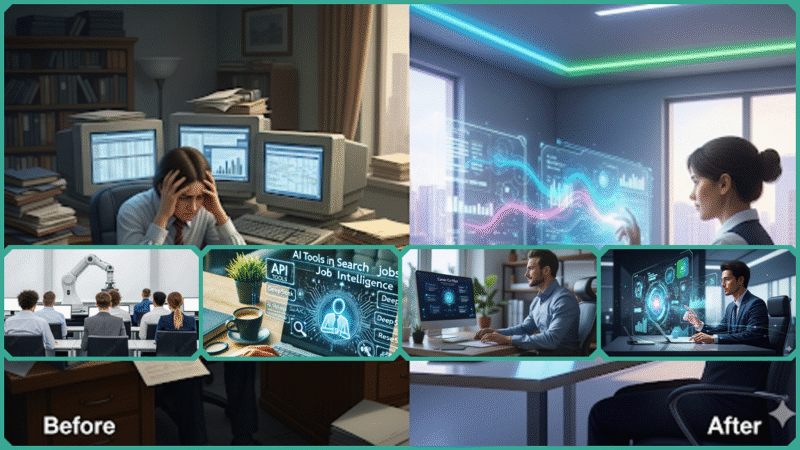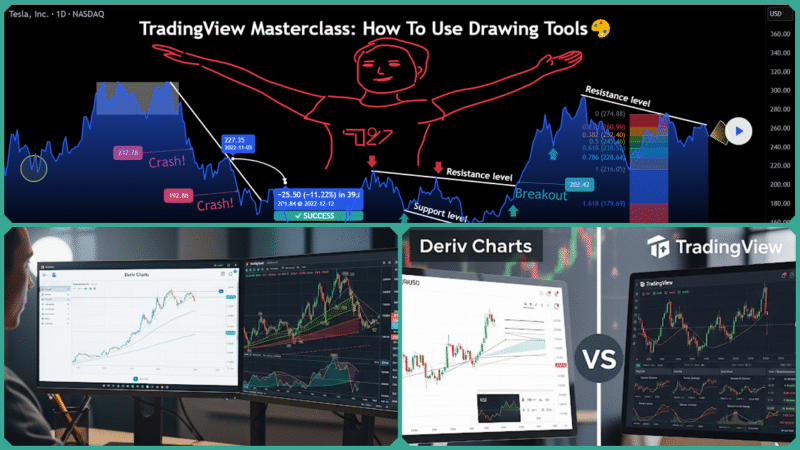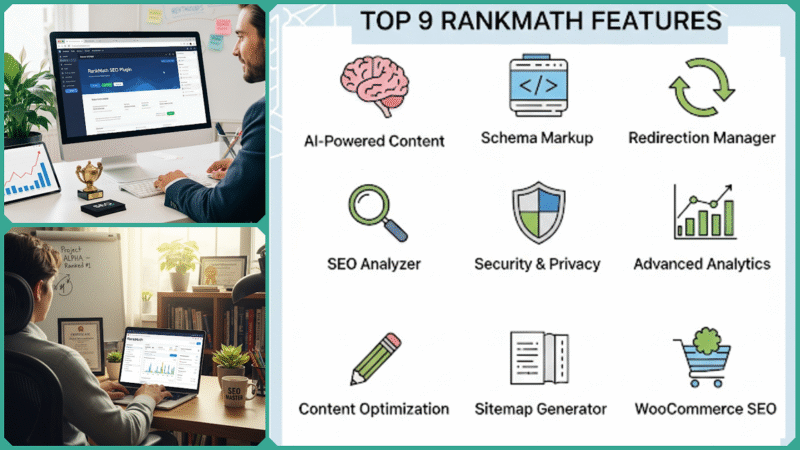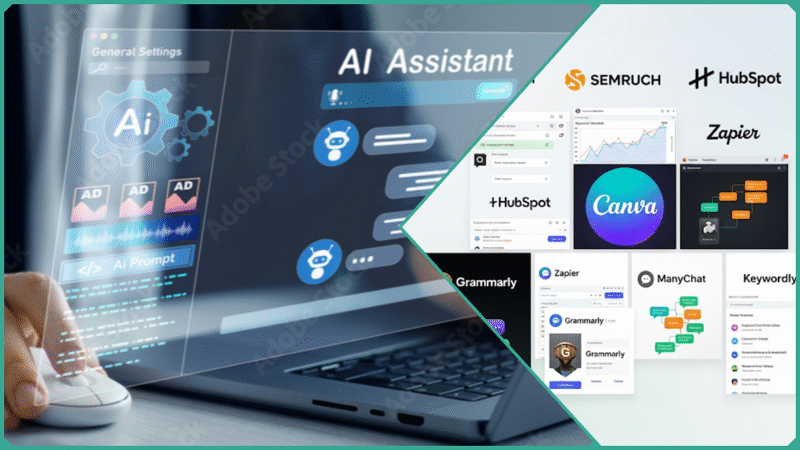Future of Chronic Care Management Software Beyond the EHRs
Estimated reading time: 15 minutes
Chronic Care Management Software (CCM) is rapidly emerging as a transformative force in the healthcare industry, fundamentally changing the way care is delivered to patients with persistent and complex health conditions such as diabetes, hypertension, and heart disease.
Although Electronic Health Records (EHRs) have long been the primary technology used for managing patient data and facilitating clinical workflows, the next generation of CCM software is poised to go far beyond these conventional systems.
This new wave of CCM solutions promises to introduce a more integrated, patient-focused approach that leverages advanced artificial intelligence and cutting-edge technologies, ultimately creating a more efficient, personalized, and proactive healthcare experience for both patients and providers alike.
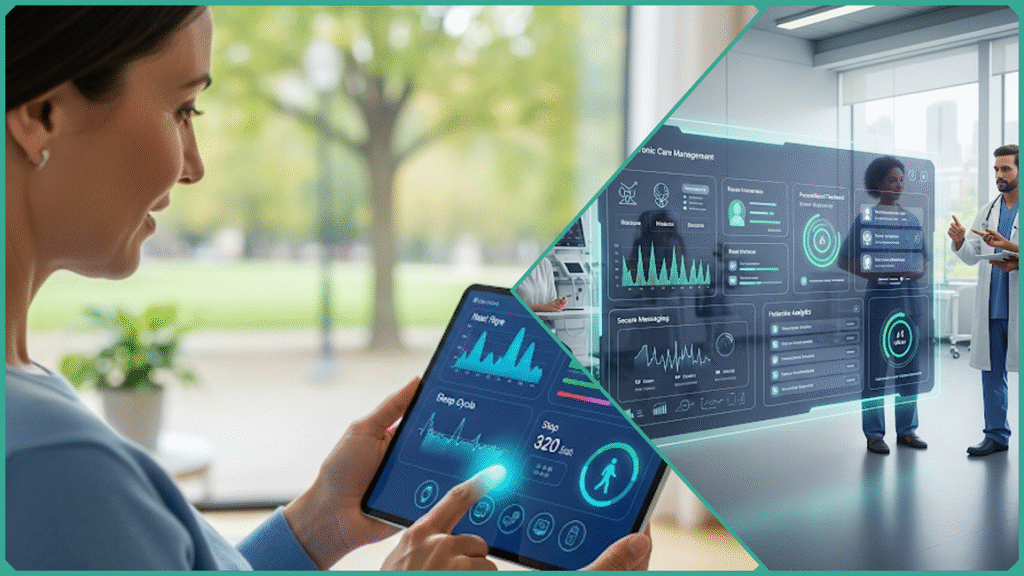
This forward-looking transformation is absolutely critical for healthcare IT professionals, product developers, administrators, investors, and consultants who are dedicated to improving patient outcomes, enhancing operational efficiency, and driving sustainable business growth in an increasingly complex and rapidly evolving digital health landscape.
By embracing these significant changes, these stakeholders are empowered to stay well ahead of rapidly evolving technological advancements and to adapt more effectively and proactively to the increasingly complex future demands of healthcare delivery systems worldwide.
Understanding Chronic Care Management Software
Chronic Care Management Software (CCM) is an essential and transformative technology that empowers healthcare providers to efficiently coordinate, manage, and deliver ongoing, continuous care specifically designed for patients living with chronic diseases.
In contrast to traditional Electronic Health Records (EHRs), which mainly function as static repositories storing patient medical history and clinical data, CCM software provides a far more dynamic, interactive, and integrated solution.
This advanced approach is uniquely tailored to address the multifaceted challenges and complexities involved in managing long-term health conditions, ensuring better patient outcomes through proactive and personalized care strategies. Key features of CCM software include:
Remote Patient Monitoring (RPM)
This approach involves the continuous and systematic tracking of a patient’s vital signs through the use of various connected devices, including blood pressure monitors, glucometers, and advanced wearable health technology. By using RPM, healthcare providers and clinicians can receive real-time, up-to-date data on their patients’ health status, which greatly enhances their ability to detect potential health issues early on.
This timely access to important health information enables more proactive and effective interventions, ultimately improving patient outcomes and reducing the need for emergency care or hospital readmissions.
Artificial Intelligence (AI) and Machine Learning (ML)
These cutting-edge technologies offer highly advanced and powerful tools that enable predictive analytics, which play a crucial role in forecasting the progression of various diseases. By analyzing vast amounts of individual patient data, AI and ML can help personalize treatment plans tailored specifically to each patient’s unique health profile.
Additionally, these technologies provide valuable clinical decision support to healthcare professionals, enhancing their ability to make informed choices. Overall, AI-driven insights contribute to making chronic care management more proactive, precise, and effective, ultimately improving patient outcomes and quality of life.
Telehealth
By providing virtual consultations and enabling remote care delivery, telehealth significantly broadens access to healthcare services beyond the confines of traditional in-person clinic visits. This approach is particularly beneficial for patients living in rural or underserved communities, where healthcare resources may be scarce or difficult to reach.
Additionally, telehealth proves invaluable during circumstances that restrict or limit face-to-face appointments, such as public health emergencies or mobility challenges, ensuring continuous and convenient medical support regardless of location.
Interoperability
Seamless and efficient data exchange across a wide range of health IT systems is crucial for achieving truly comprehensive care coordination. CCM software plays a vital role by ensuring that important information flows smoothly and securely between different healthcare providers, various medical devices, and diverse technological platforms.
This capability effectively breaks down the traditional silos that have long hindered holistic and integrated patient management, ultimately fostering better communication and collaboration among all parties involved in patient care.
Patient Engagement
Empowering patients by providing them with convenient access to their comprehensive health data, along with user-friendly tools, enables them to actively participate in managing their chronic conditions. This active involvement is a fundamental aspect of Chronic Care Management (CCM).
When patients are more engaged and informed, they are more likely to adhere to prescribed care plans consistently, which ultimately leads to significantly better health outcomes and an overall improvement in their quality of life.
In Summary
Chronic Care Management Software represents a truly transformative approach in healthcare, moving far beyond the traditional limitations posed by conventional Electronic Health Records (EHRs). This advanced software enables continuous, integrated, and highly patient-centered care designed specifically to address the complex and evolving needs of managing chronic diseases.
By facilitating continuous and ongoing monitoring, enhancing communication between healthcare providers and patients, and promoting coordinated care efforts across different healthcare teams, it significantly supports and contributes to achieving better health outcomes for patients who are living with chronic and long-term conditions.
Current Trends and Innovations Beyond EHRs
The current trends and innovations in Chronic Care Management (CCM) software, which extend well beyond the scope of traditional Electronic Health Records (EHRs), demonstrate a dynamic and rapidly evolving landscape that is primarily driven by advancements in technology as well as the shifting paradigms in healthcare delivery models.
Among the most significant and impactful developments in this area, several key advancements stand out prominently and have greatly influenced the field:
- Modular and Headless EHR Architectures: These new architectures separate the backend data storage from the user interface, enabling healthcare organizations to integrate specialized CCM applications and AI analytics independently from the core EHR system. This modularity fosters scalability, customization, and faster innovation, allowing IT teams to tailor chronic care solutions more flexibly.
- Advanced AI-Powered Analytics: AI is increasingly used to analyze vast and complex patient data sets to anticipate disease flare-ups or complications before symptoms manifest. Predictive analytics contribute to personalized care pathways that consider genetics, lifestyle, and disease progression. This enhances proactive interventions, which reduce hospital admissions and improve long-term outcomes.
- Remote Patient Monitoring (RPM) with Telehealth Integration: RPM devices such as wearables and IoT sensors collect real-time biometrics (e.g., blood pressure, glucose levels), feeding data into telehealth platforms. This enables virtual consultations and prompt clinical response without physical visits. It’s especially beneficial for patients in rural or underserved areas and aligns with value-based care, emphasizing prevention and chronic disease control.
- Blockchain for Security and Data Integrity: To address privacy, security, and interoperability challenges, blockchain technology is explored for decentralized health record storage and exchange. Blockchain can ensure patient data integrity, reduce fraud, and empower patients with greater control over their records, facilitating secure sharing across healthcare providers without risking tampering or breaches.
- Enhanced Patient-Centric Digital Platforms: New software platforms offer patients comprehensive dashboards aggregating lab results, medication adherence data, and lifestyle insights. These empower patients to actively manage their health, improving engagement and compliance with care plans. Some platforms incorporate genomic data to tailor treatment further to individual needs.
- AI-Driven Automation to Reduce Administrative Burdens: Automation in CCM software streamlines clinical documentation, billing, compliance workflows, and reimbursement for telehealth and RPM services. This reduces clinician burnout by minimizing paperwork, enhances revenue optimization, and allows providers to concentrate on patient care quality.
These trends are strongly supported by several key market growth factors, including
- The rapidly rising burden of chronic diseases across populations
- The steadily increasing patient demand for convenient virtual care options
- Significant advances in artificial intelligence (AI) and the Internet of Things (IoT)
- The evolving reimbursement models are increasingly favoring value-based care approaches
Each one of these essential elements plays a vital and indispensable role in actively driving the overall growth, development, and significant transformation of the rapidly evolving healthcare market landscape.
Prominent CCM software providers that exemplify these groundbreaking innovations include
- CareCloud
- Prevounce
- HealthArc
- Persivia CareSpace®
These platforms seamlessly integrate advanced AI-driven analytics, remote patient monitoring (RPM), and enhanced interoperability features. By combining these cutting-edge technologies, they enable healthcare professionals to deliver more effective, efficient, and patient-centered chronic care management, ultimately improving health outcomes and patient satisfaction.
Overall, the future of Chronic Care Management Software goes well beyond the constraints of traditional EHRs, driving a shift towards modular, intelligent, and patient-empowered chronic disease management ecosystems.
These important developments are strongly supported and driven by powerful market forces, including
- The rapid growth of aging populations
- The increasing prevalence of chronic diseases
- Widespread adoption of telehealth technologies
- Significant shifts toward value-based care models
Leading chronic care management (CCM) software vendors such as CareCloud, Prevounce, and Persivia exemplify these evolving trends by integrating cutting-edge artificial intelligence, enhanced interoperability features, and sophisticated monitoring tools.
Together, these innovations are helping to fundamentally transform chronic care management far beyond the traditional limitations of electronic health records (EHR) systems. This progression marks a shift from static, monolithic records to dynamic, intelligent, and patient-empowered chronic care management ecosystems.
Market Leaders and Real-World Examples
Several innovative companies are at the forefront of developing and providing advanced Chronic Care Management (CCM) software solutions in 2025, clearly exemplifying the ongoing shift toward more proactive, integrated, and value-based care models. These organizations are leveraging highly sophisticated technology platforms designed to enhance patient outcomes, streamline care coordination, and improve overall healthcare efficiency. Their cutting-edge software tools are transforming the way chronic conditions are managed, ensuring that care is more personalized, timely, and effective across diverse patient populations.
| Company | Key Features & Differentiators | Focus & Strengths |
|---|---|---|
| CareCloud | Intuitive platform with seamless integration of patient data and automated care plans to enhance provider workflows and patient outcomes. AI-enabled and compliant with healthcare regulations. | Provider workflow optimization, data integration, automation |
| Prevounce | Emphasizes proactive and preventive care with data-driven insights, risk stratification, and innovative preventive health management. | Preventive care, risk management, value-based care |
| HUMHEALTH | Offers precision chronic care management, prioritizing personalized, patient-centered solutions tailored to individual chronic conditions with comprehensive compliance tools. | Personalization of care, chronic disease specificity |
| HealthArc | Provides a holistic chronic care management platform covering all aspects of care coordination, patient engagement, and compliance, facilitating integrated healthcare delivery. | Holistic care coordination, integrated compliance |
| PharmD Live | Pharmacist-led, AI-powered CCM model aligned with CMS requirements. Focuses on medication management optimization, telehealth integration, preventive interventions, and reducing adverse drug events and hospital readmissions through clinical pharmacist expertise supported by predictive analytics. | Pharmacist-driven medication management, AI-powered risk prediction, CMS compliance |
These market leaders illustrate the transformation of chronic care from fragmented and transactional systems towards more intelligent, patient-centered, and integrated ecosystems. They utilize modular, interoperable technologies, artificial intelligence for predictive analytics, remote patient monitoring, telehealth, and automation to advance both clinical outcomes and operational efficiency.
PharmD Live notably distinguishes itself through its innovative pharmacist-led, AI-powered approach, which plays a crucial role in significantly reducing adverse drug events and lowering hospital readmission rates. This advanced methodology effectively positions PharmD Live as a prominent and distinct leader in the evolving landscape of 2025 Chronic Care Management (CCM) solutions.
This evolving landscape reflects a rapidly maturing market where vendors are increasingly going beyond simply meeting regulatory demands and compliance requirements. They are actively driving innovation that empowers healthcare providers, enhances patient engagement, and ultimately improves long-term health outcomes in meaningful and measurable ways.
Key Benefits of Evolving CCM Technology
The rapidly evolving Chronic Care Management (CCM) technology presents a wide range of significant benefits that extend far beyond the scope of traditional healthcare delivery models. This advancement is reshaping how chronic conditions are managed, improving patient outcomes and operational efficiencies.
Below is a detailed explanation of the key benefits you mentioned, thoughtfully contextualized for healthcare IT professionals, product developers, and executives who are steering innovation and strategy in this critical area:
Improved Patient Outcomes
Continuous monitoring enabled by advanced CCM platforms facilitates early identification of health deterioration or potential complications in chronic patients. Predictive analytics powered by AI predict flare-ups or disease progression before symptoms become severe, allowing timely interventions.
This proactive approach reduces hospital admissions, emergency visits, and overall morbidity — leading to better patient quality of life and longevity. For example, remote blood glucose monitoring combined with AI alerts can help diabetics avoid costly complications like diabetic ketoacidosis.
Reduced Healthcare Costs
By preventing avoidable hospitalizations and emergency care through early detection and coordinated chronic care, healthcare systems can lower costs significantly. Additionally, value-based care reimbursement models favor providers who reduce costly acute care episodes.
CCM software supports this by automating workflows, ensuring adherence to evidence-based guidelines, and streamlining billing for remote patient monitoring (RPM) and telehealth services. This financial optimization benefits healthcare organizations while improving care quality.
Enhanced Patient Engagement
Modern CCM software empowers patients by providing access to their health data through intuitive dashboards, medication reminders, and educational resources. Tools such as mobile apps and wearables foster self-management, which is critical for chronic disease control.
Engaged patients are more likely to adhere to treatment plans, attend follow-up visits, and make lifestyle changes. Higher engagement directly correlates with improved outcomes and lower healthcare utilization.
Better Care Coordination
Effective chronic care requires collaboration across multiple providers and care settings. Evolving CCM technologies prioritize interoperability and real-time data sharing, ensuring all members of a patient’s care team—from primary care physicians to specialists and pharmacists—have access to up-to-date clinical information. This prevents duplication of tests, inconsistent treatment plans, and medication errors, improving patient safety and treatment efficacy.
Streamlined Operations
Administrative burdens like documentation, coding, and billing have historically contributed to clinician burnout and inefficiencies. Advanced CCM solutions incorporate AI-driven automation to handle routine tasks such as capturing clinical notes, managing compliance documentation, and processing reimbursements for CCM services.
By reducing these operational overheads, providers can focus more on delivering high-quality patient care, and organizations can achieve higher productivity and profitability.
Summary of the Key Benefits of Evolving CCM Technology
| Benefit | Description | Impact on Stakeholders |
|---|---|---|
| Improved Patient Outcomes | Early detection via continuous monitoring and predictive AI supports timely interventions. | Better health, longer life, fewer complications |
| Reduced Healthcare Costs | Avoidance of hospitalizations and streamlined billing under value-based care models. | Lower costs, higher reimbursements, financial sustainability |
| Enhanced Patient Engagement | Patient-accessible tools encourage self-management and adherence. | Improved compliance, empowerment, and better chronic disease control |
| Better Care Coordination | Real-time data sharing across care teams reduces errors and redundancies. | Safer, more effective, integrated care |
| Streamlined Operations | Automation reduces documentation burdens and optimizes workflow and billing. | Increased provider capacity, reduced burnout, and operational efficiency |
The rapid advancements and continuous innovations in CCM software technology are dramatically transforming and reshaping the chronic care paradigm, moving it decisively toward more personalized, efficient, and patient-centered models of care delivery.
These significant benefits collectively create a highly compelling and attractive value proposition for healthcare organizations that are focused on improving both clinical outcomes and financial performance in the complex management of chronic diseases.
FAQs
How does Chronic Care Management Software differ from traditional EHRs?
CCM software is designed specifically to manage ongoing care for patients with chronic conditions by integrating continuous remote monitoring, AI-driven predictive analytics, and proactive care workflows. In contrast, traditional Electronic Health Records (EHRs) primarily function as repositories of comprehensive patient health data, storing medical history, diagnoses, treatment plans, and clinical notes.
While EHRs focus on documentation and clinical record-keeping, they often lack advanced functionalities required for chronic care coordination, such as care plan automation, risk stratification, and billing tailored to CCM services. CCM software often integrates with EHRs but adds specialized features like patient engagement portals, time tracking for CCM billing, and care team collaboration tools specifically optimized for value-based care programs.
What role does AI play in the future of CCM software?
AI enhances CCM software by providing predictive analytics that can detect early signs of disease exacerbation, personalize treatment plans based on patient-specific data such as genetics and lifestyle, and automate administrative tasks like documentation and billing.
AI supports clinical decision-making with real-time insights, enabling proactive, rather than reactive, chronic care. By forecasting potential health risks and optimizing clinical workflows, AI helps reduce hospitalizations, improve patient outcomes, and lessen provider burden.
Can CCM software work independently of EHR systems?
Modern CCM platforms increasingly adopt modular and API-driven architectures that allow them to integrate seamlessly with existing EHR systems. However, many CCM solutions can operate as standalone platforms if needed, while still supporting interoperability standards to exchange data efficiently. This flexibility enables healthcare organizations to deploy CCM software either as an adjunct to their EHR or independently, depending on their IT ecosystem and strategic goals.
How is patient data security maintained in advanced CCM technologies?
Advanced CCM solutions employ robust security measures including encryption, access controls, and compliance with healthcare privacy regulations (such as HIPAA in the US). Emerging technologies like blockchain are increasingly explored to create decentralized, tamper-resistant health record systems that enhance data integrity, transparency, and patient ownership of medical information. Blockchain can secure patient data sharing across multiple providers without compromising privacy, reducing the risk of breaches and unauthorized access.
What are the key drivers for healthcare organizations to adopt next-gen CCM software?
Healthcare organizations are motivated to adopt next-generation CCM software by several factors: the shift toward value-based care reimbursement models that reward improved patient outcomes and cost reductions; regulatory policies encouraging chronic care coordination; technological advances in AI, remote patient monitoring (RPM), and telehealth; and the increasing need to enhance patient engagement and reduce clinician administrative burden. These drivers align with goals to improve care quality, operational efficiency, and financial sustainability.
Discover more from Skill to Grow
Subscribe to get the latest posts sent to your email.

